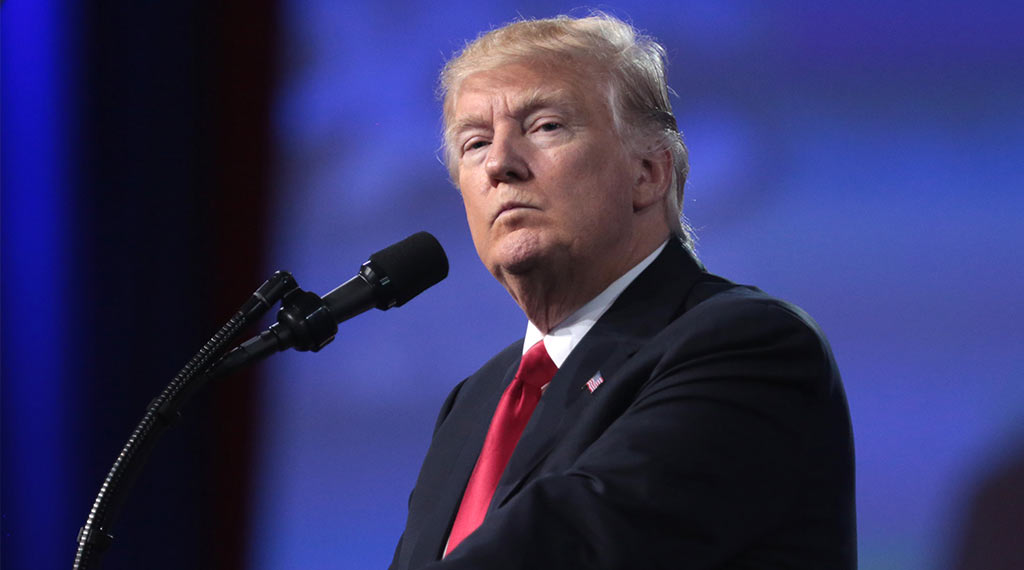Donald Trump knows how to set the American foreign policy blob’s hair alight.
And he did it the other day when he said to Bloomberg Businessweek:
“I think Taiwan should pay us for defense. You know, we’re no different than an insurance company. Taiwan doesn’t give us anything.”
Trump’s wording can seem like a verbal version of Mr. Toad’s Wild Ride, but as is often the case, his instincts aren’t far off the mark.
Countries that expect the Americans to show up when trouble comes calling can’t say they haven’t been warned.
For too long, American elites seemed to regard sending U.S. troops abroad as a real-world graduate school seminar to test their IR theories. Secretary of State Madeleine Albright displayed that in spades when she chided Colin Powell, chairman of the Joint Chiefs of Staff, for not wanting to deploy U.S. forces to Bosnia without a clear political objective:
“What’s the point of having this superb military that you’re always talking about if we can’t use it?”
Imagine the U.S. as a fire department with limited firetrucks. If Israel, Ukraine, Poland, South Korea, Japan, Taiwan and the Philippines call 911 at the same time, who gets priority?
Ask any ambassador from these countries the same question and ask them who they would prioritize if they were the U.S.
It’s going to be whoever has done their best to ensure their house isn’t a fire trap, they’ve got plenty of fire extinguishers and are trying furiously to put the fire out.
Not the guy who skimped on fire prevention and is trying to untangle the garden house.
If there’s a Trump-Vance administration, any country that wants American help had better be doing everything it possibly can to defend itself if it expects the United States to offer up its troops.
As for Taiwan, there are darn good reasons for ensuring China doesn’t take it, and Trump needs to talk to his former national security adviser, Robert O’Brien. Yes it buys American hardware. But that’s not enough.
For decades successive Taiwan administrations underfunded and paid scant attention to its military – seemingly oblivious to the China threat. The idea was that the Americans would show up when needed.
Japan? Something similar. It’s an important ally. But it underspent on defense for decades, and recently missed recruitment targets by 50%. The dirty secret: Japan’s military is not ready to fight a war. Not to worry, Japanese politicians would sometimes say when in their cups, our American guard dogs will protect us.
The Europeans, with just a few exceptions – Poland and few of the “little” countries – ignored U.S. requests to take defense seriously. They even laughed at President Trump when he warned them of danger – and “blob” back home called him an intemperate rube. Ukraine was a wakeup call, but even that doesn’t seem to have been enough.
The D.C. foreign policy crowd claims anyone who calls for caution when sending U.S. troops overseas or getting involved in someone else’s fight is an “isolationist” or an “America Firster.” But they and their relatives (and even their friends) almost never serve in the forces.
And even worse, the foreign policy Brahmins don’t care much about the deplorables from flyover country who make up most of the U.S. military.
The families whose children do serve never get asked what they think. And after 20 years of failure in Iraq and Afghanistan and seemingly open-ended commitments to Ukraine and the Middle East – and a brewing war in East Asia – they’ve got good reason to think the blob maybe isn’t all that smart.
They’re not isolationists. They’re patriots willing to risk all for the nation.
But the lower orders (as the blob sees them) are no longer willing to write a blank check and hand it over to the foreign policy experts.
- ATACMs? What are they thinking? - November 24, 2024
- North Korea will be ‘less emboldened’ under new Trump administration, says ex-US diplomat - November 18, 2024
- Trump’s picks signal tough China stance: expert - November 13, 2024

